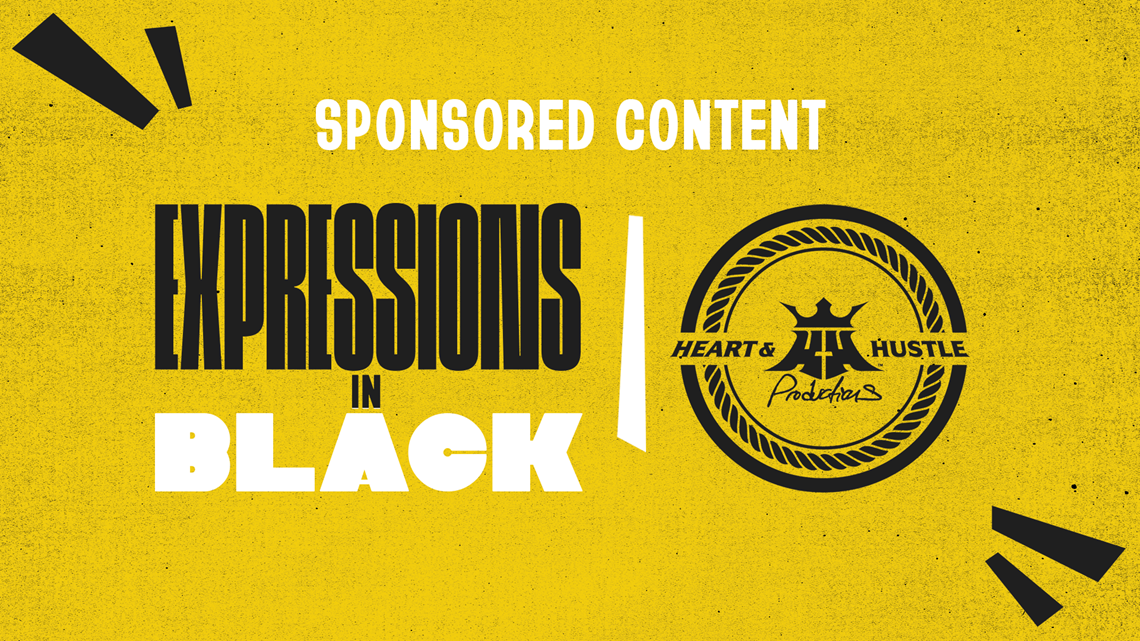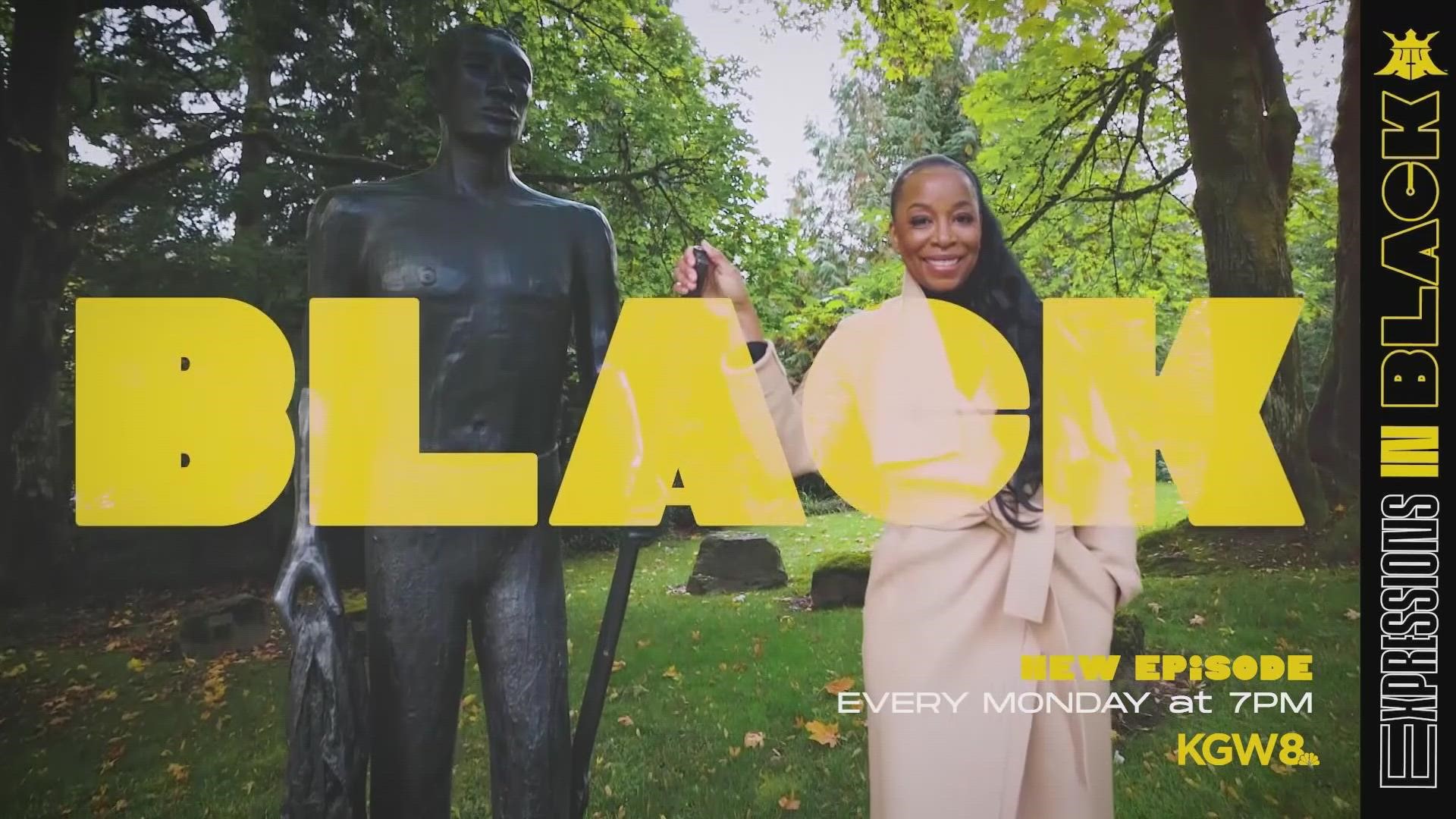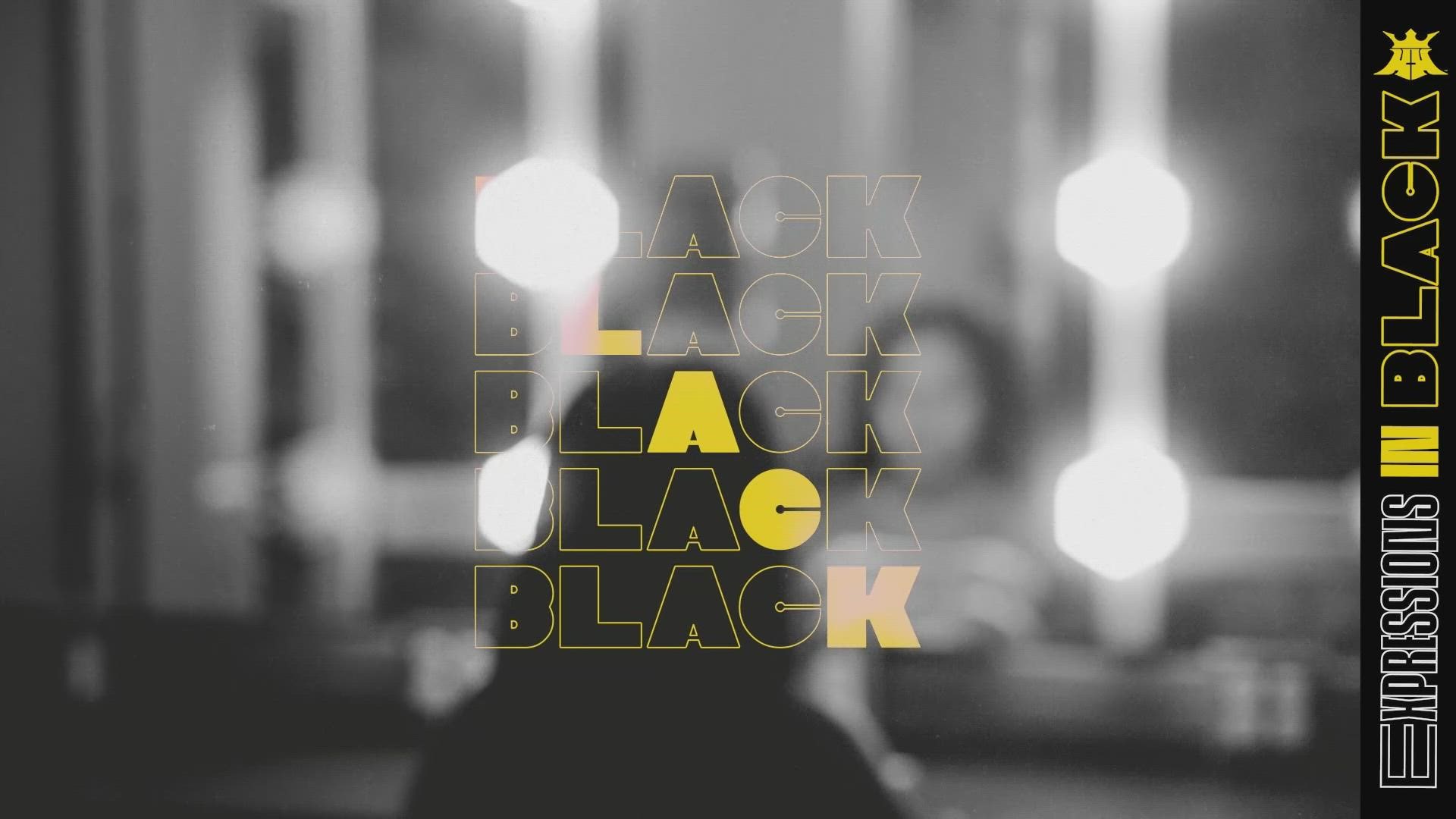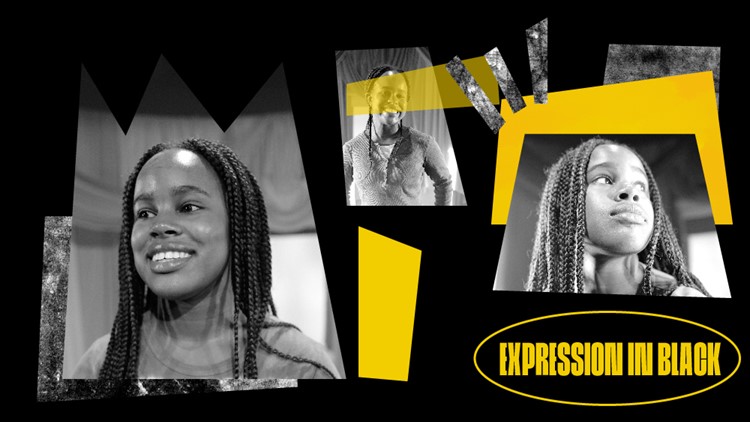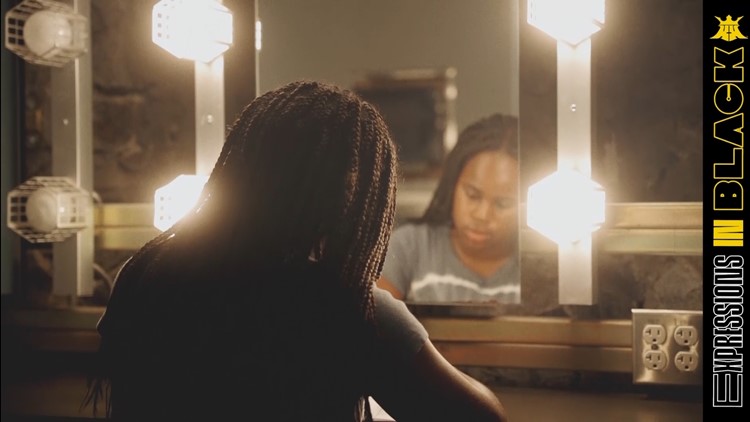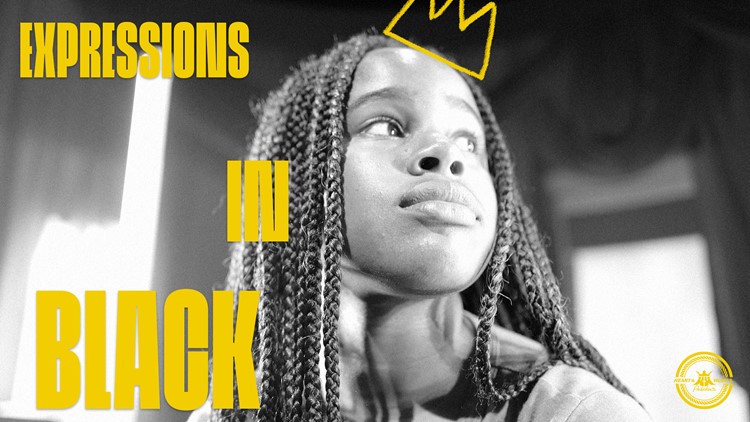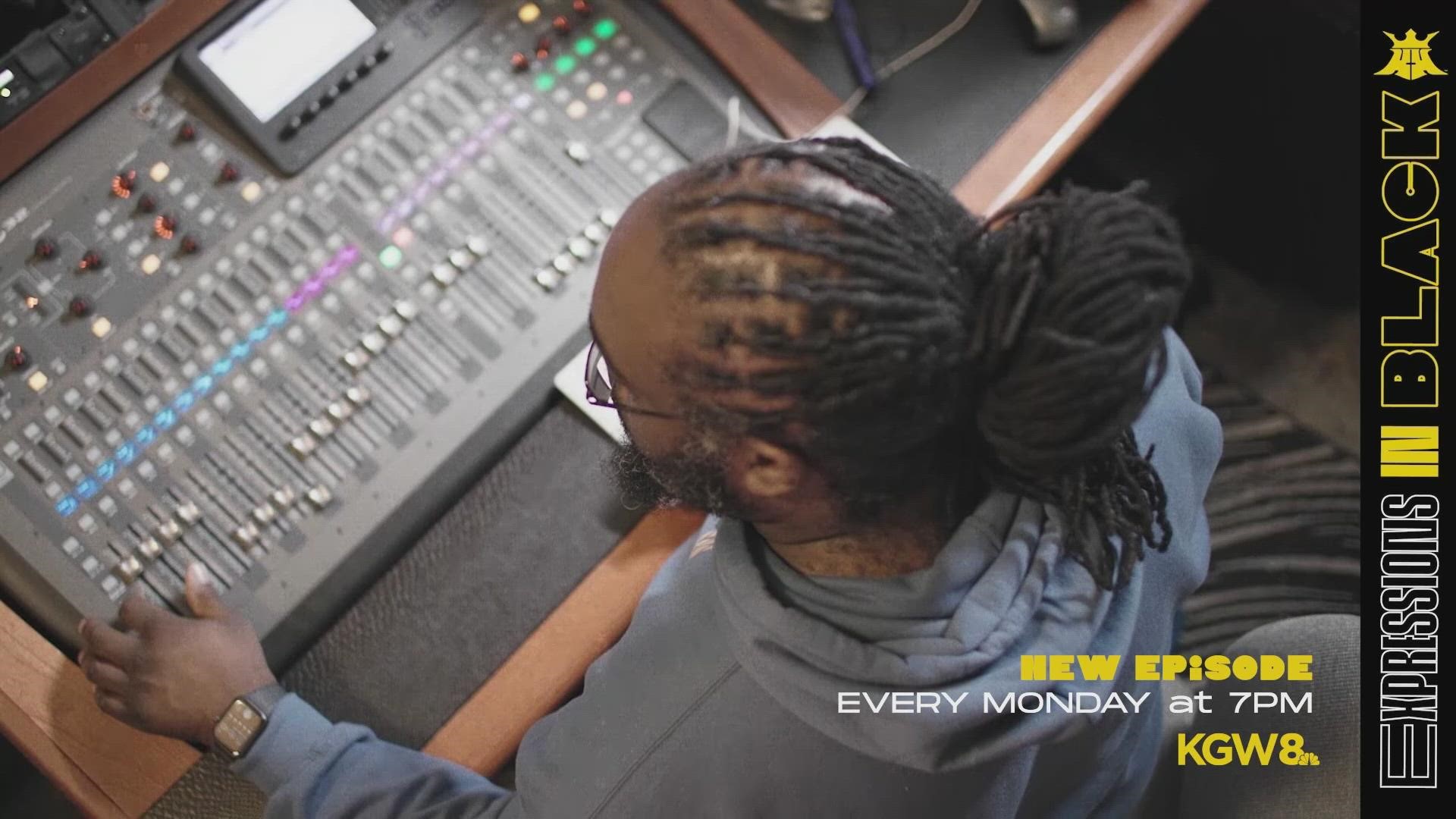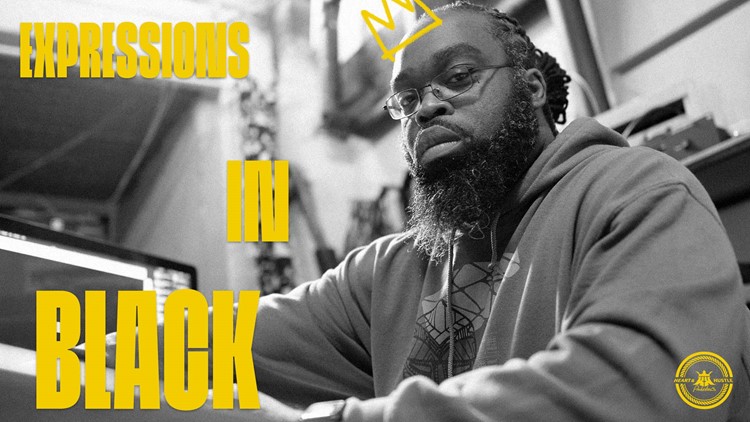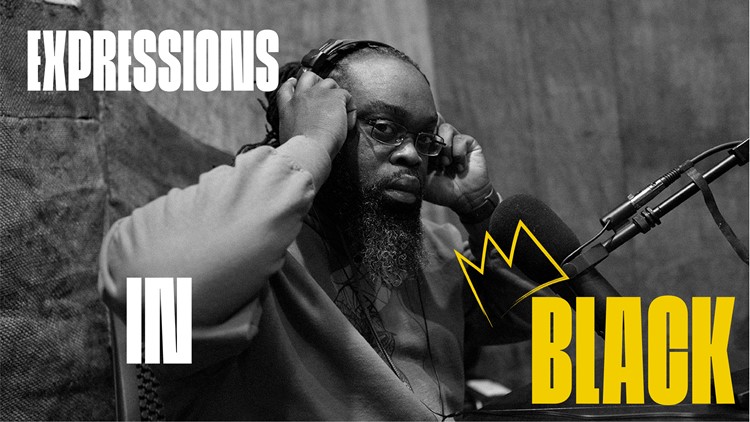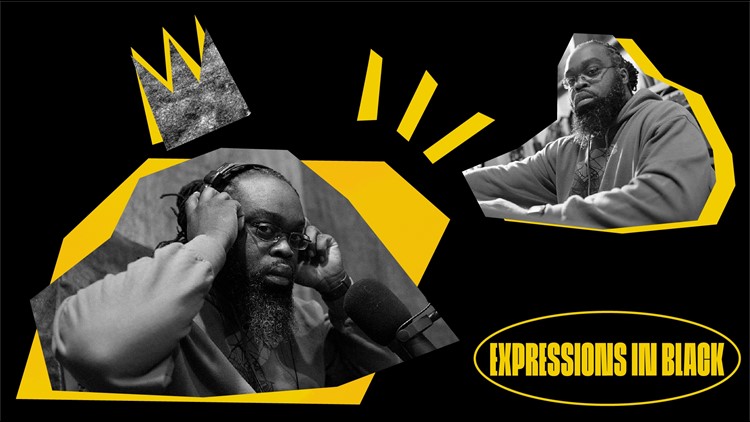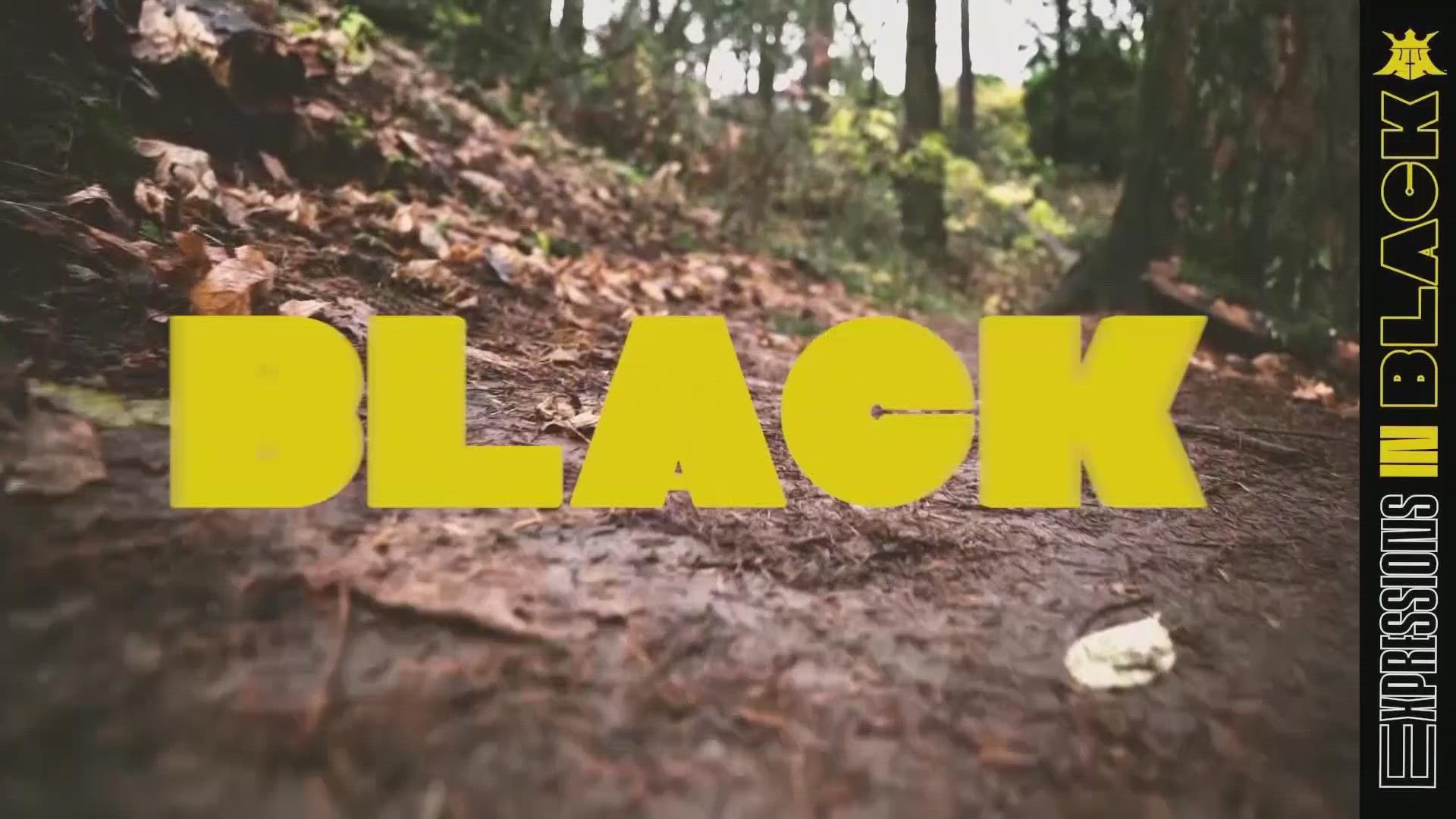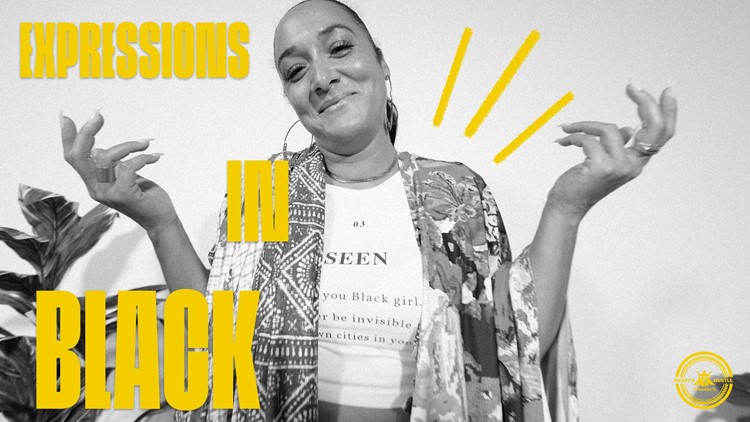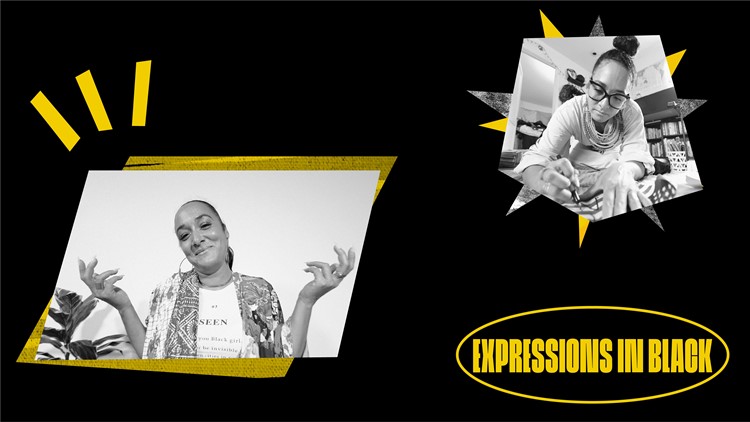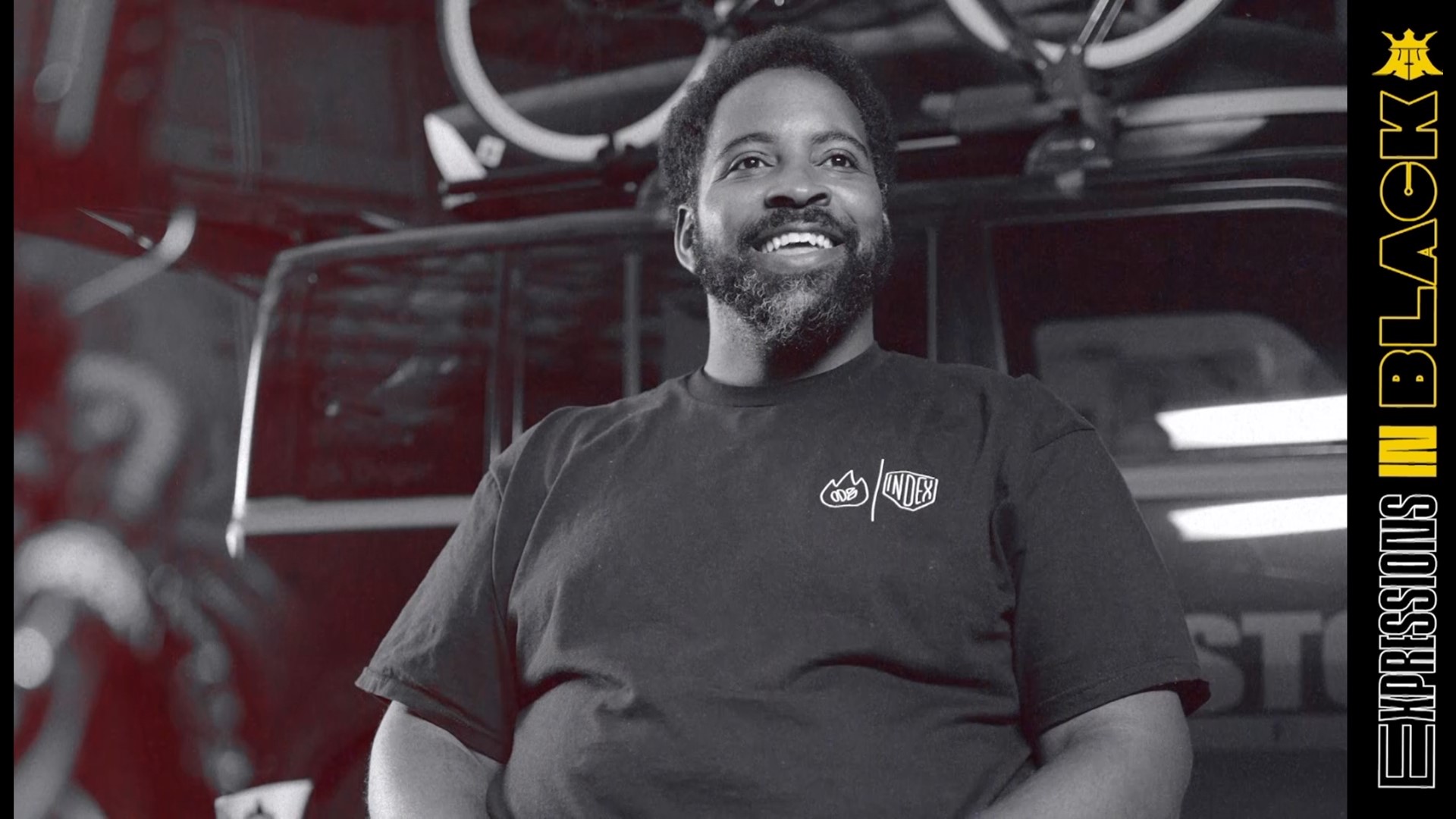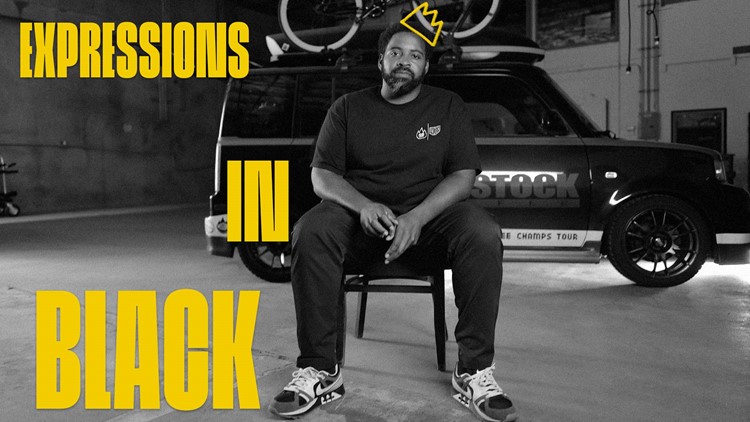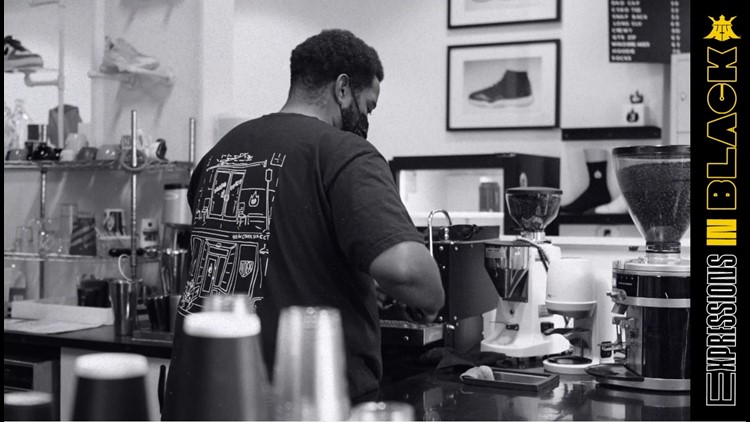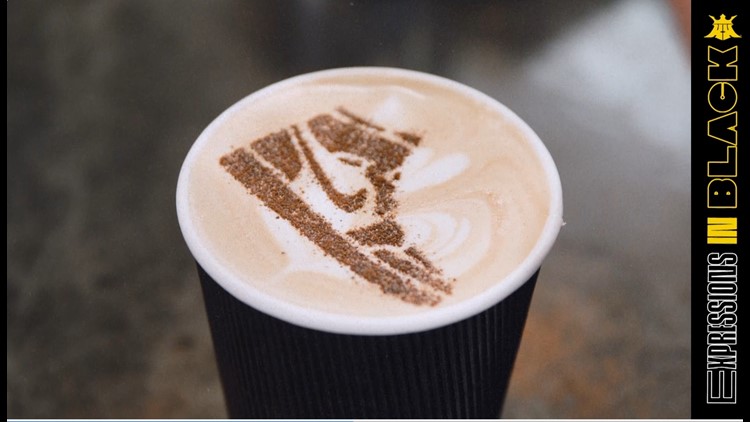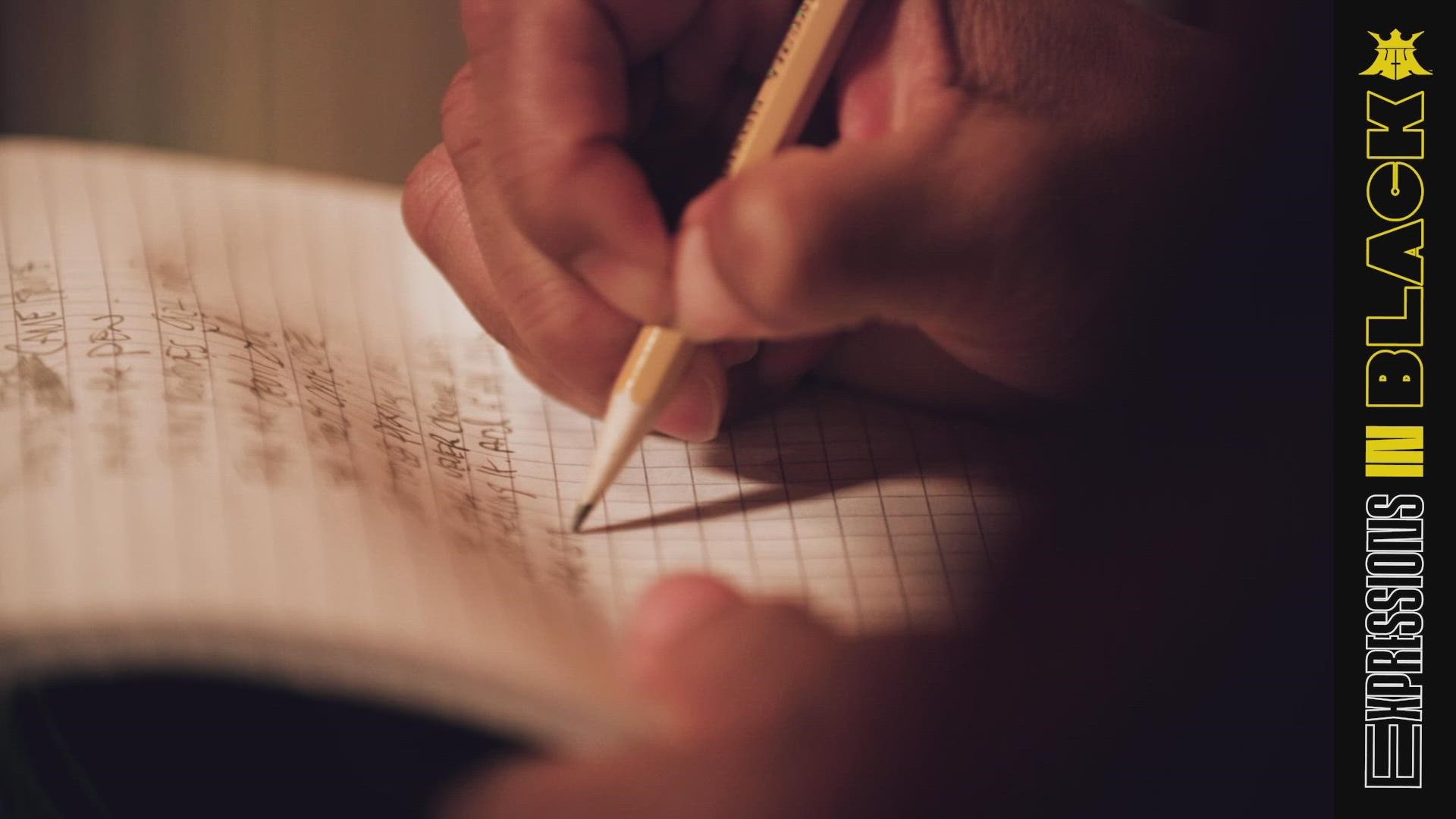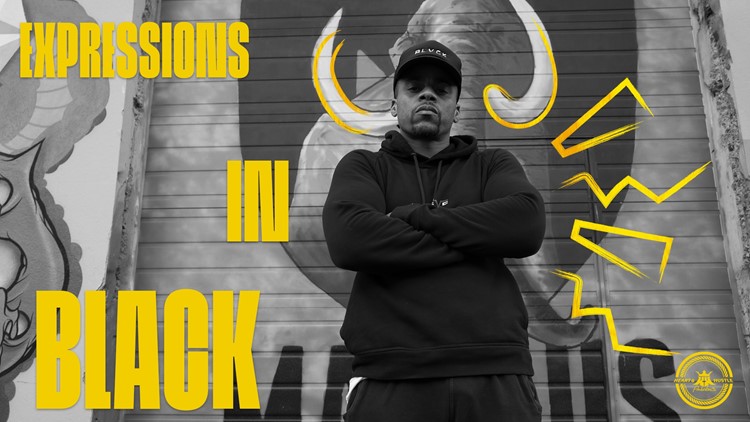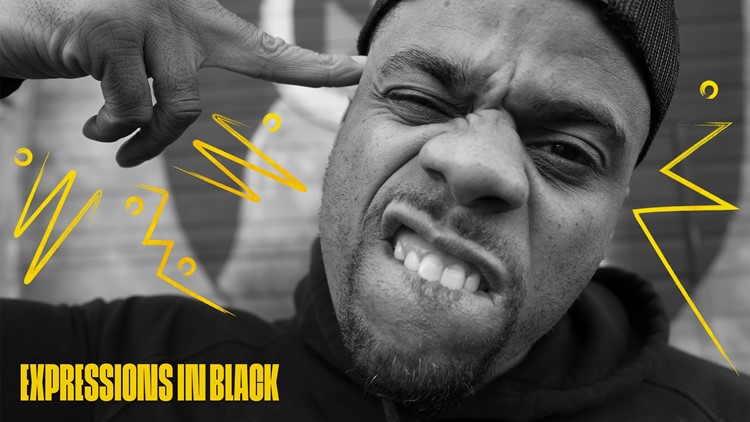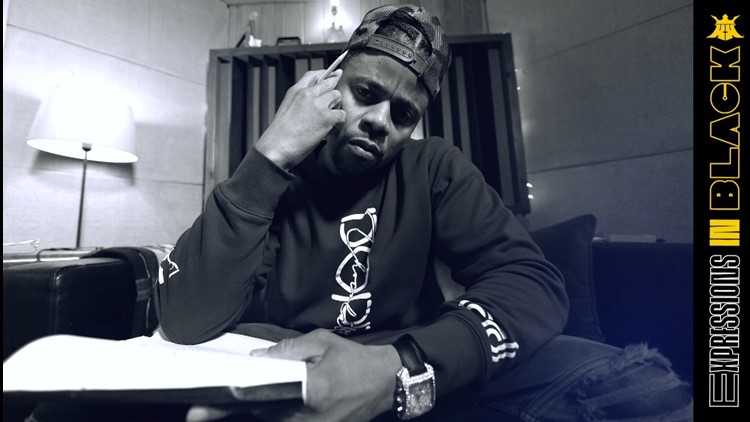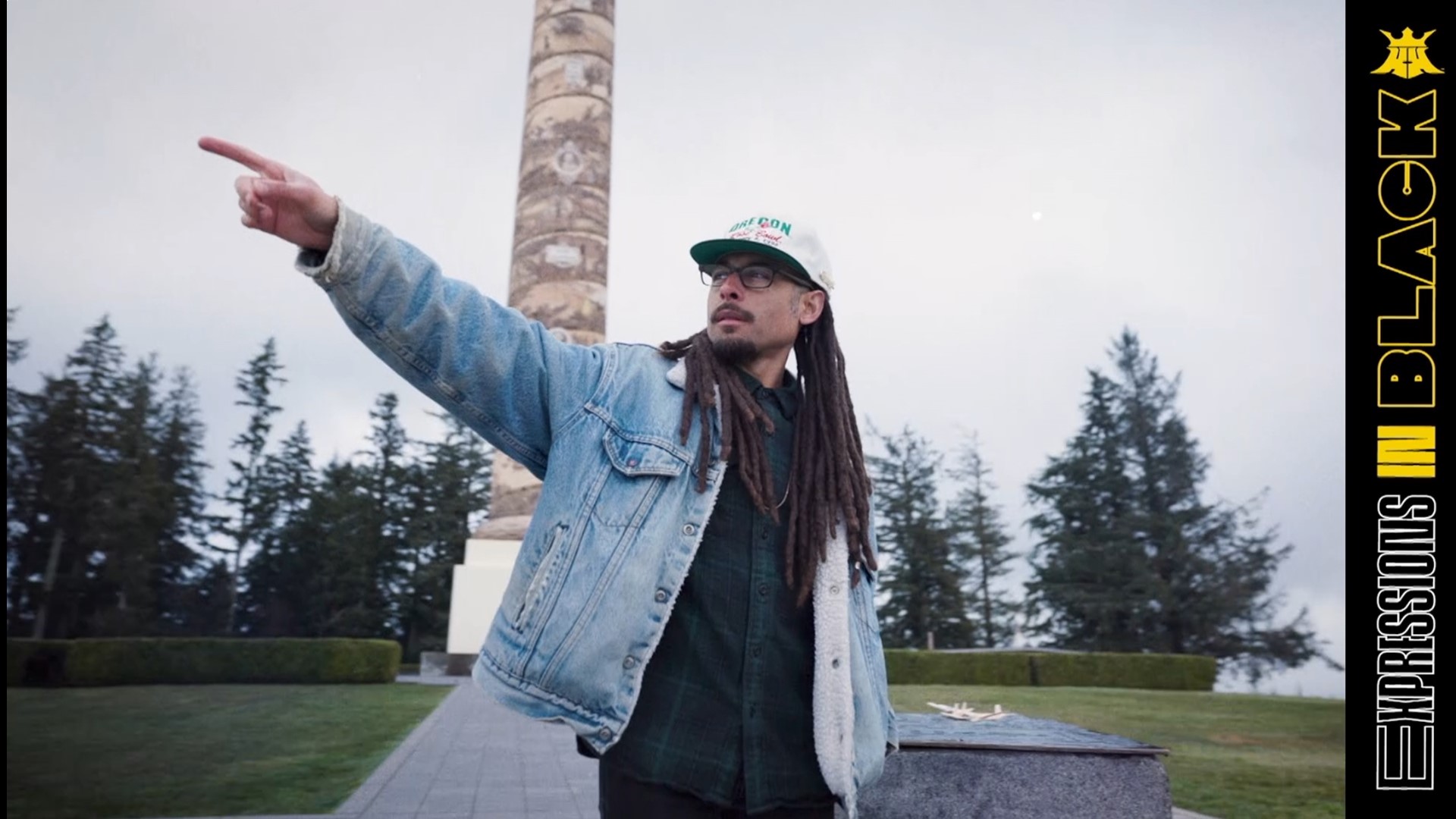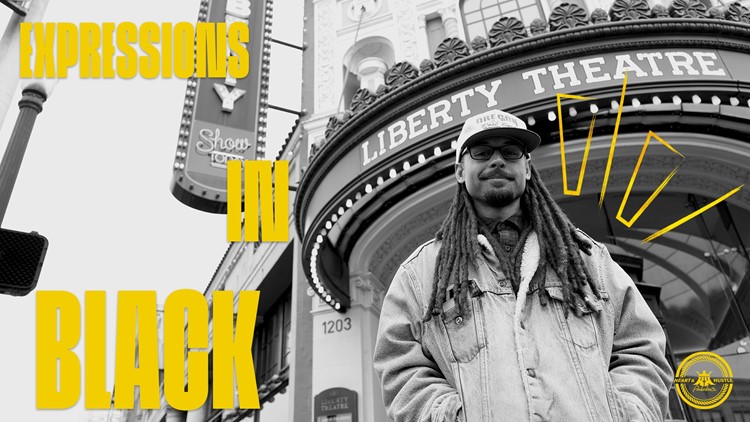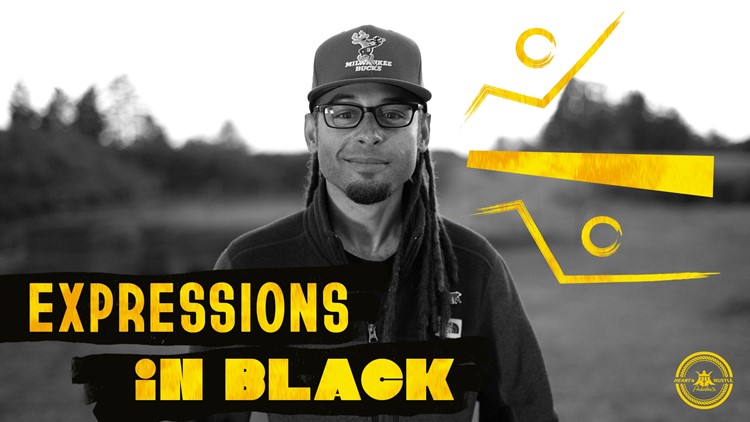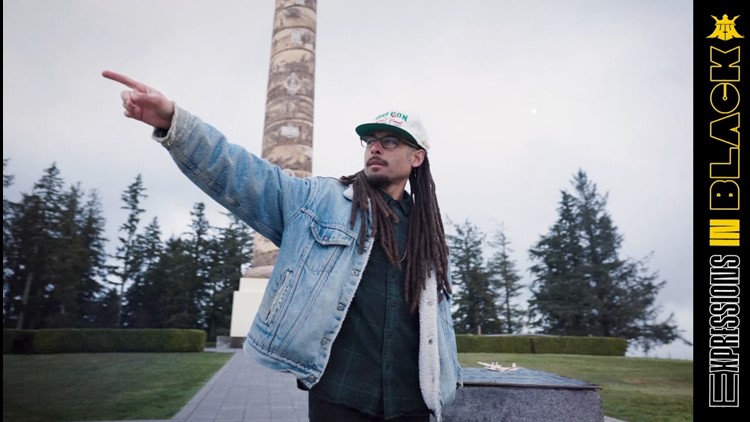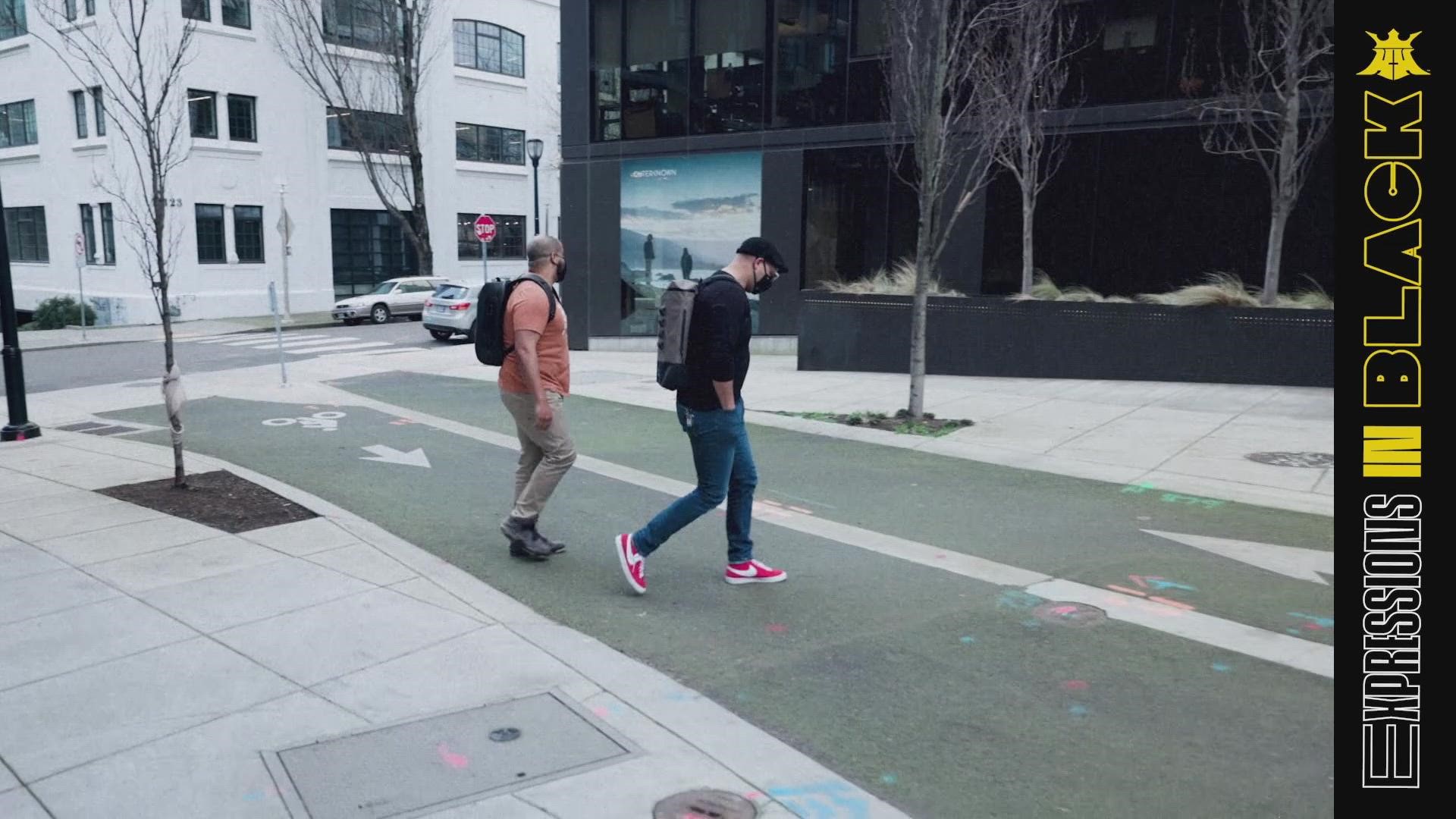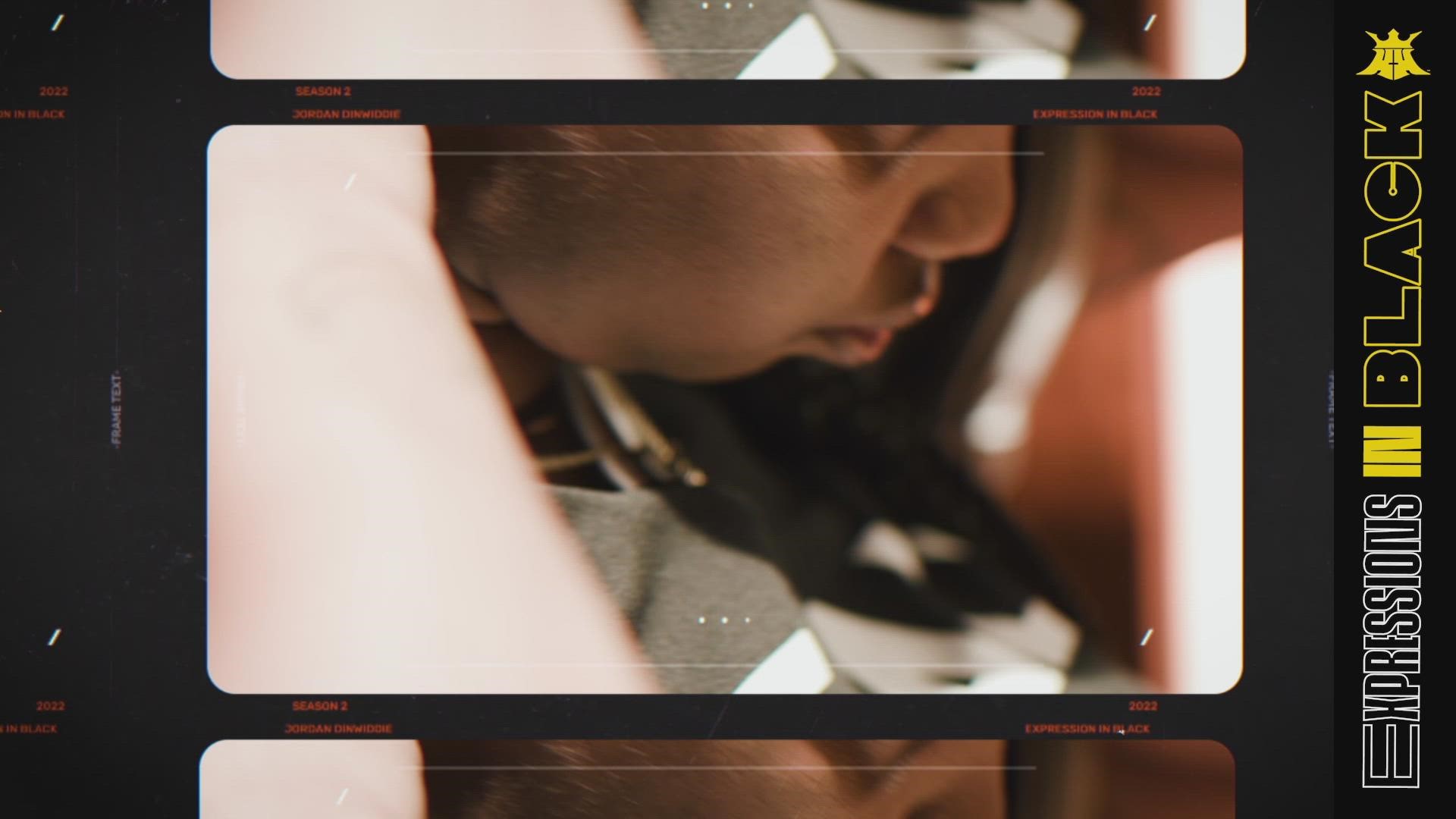Expressions in Black | Season 2
Real, unfiltered stories central to Oregon's Black community.
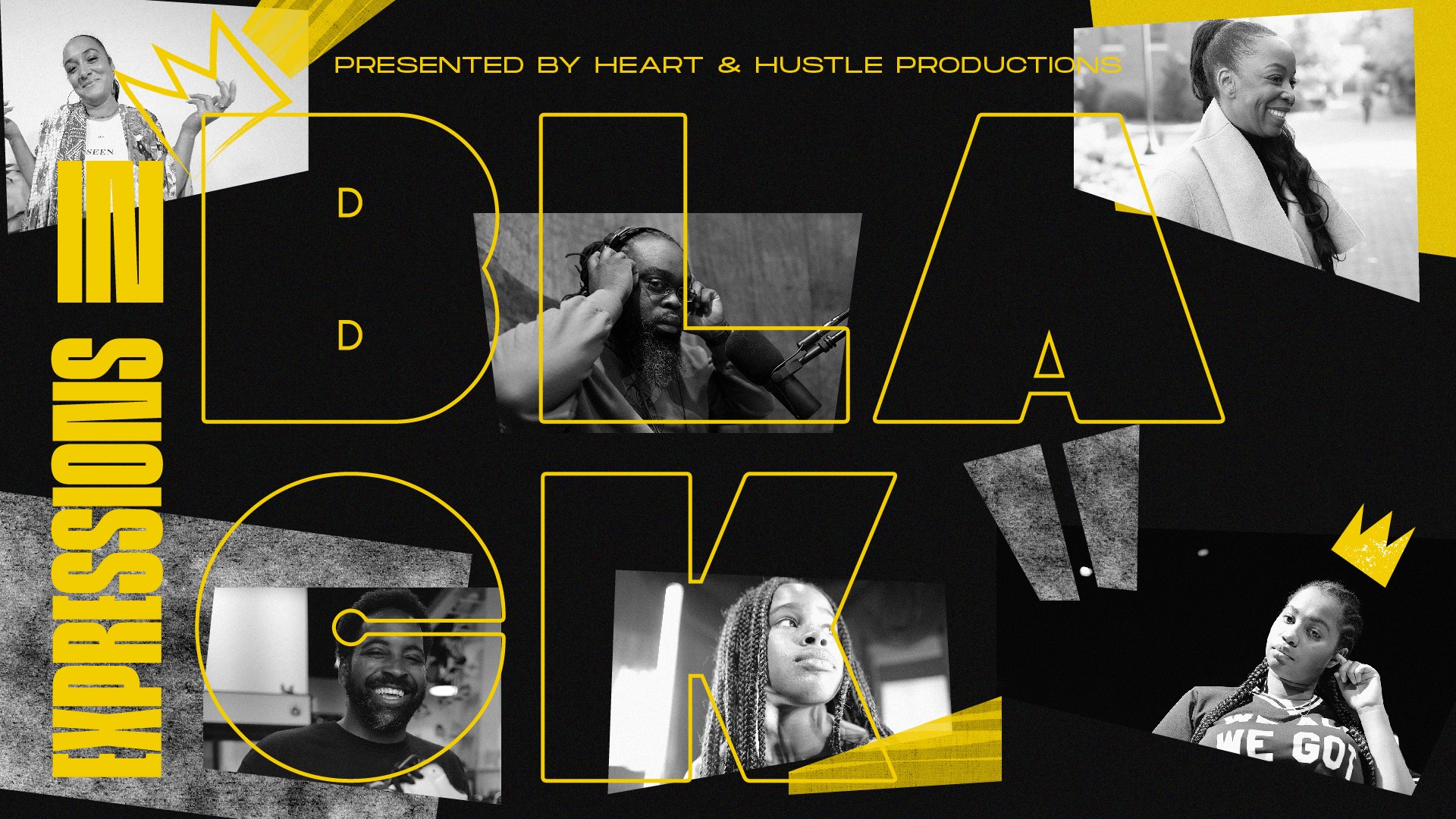
SPONSORED CONTENT: Expressions in Black is back for a second season of authentically produced shorts that deliver real, uninterrupted stories central to the Black community.
Watch Expressions in Black Monday nights at 7:20 p.m. after The Good Stuff on KGW. Episode will re-air each Wednesday at the same time.
Each of the featured characters takes viewers on an unfiltered journey through their experience, giving every episode a unique flavor, feel and flow.
This season, the Heart & Hustle team traveled beyond Portland city limits to Astoria, Hood River and other parts of the state to capture the varying environments where Black Oregonians are thriving and sharing their Black excellence.
Episode 1 Bobbi Mackenzie
Expressions in Black: Bobbi Mackenzie | Actress and Singer
"I knew that acting was something that I was built for at a very young age. When I would go see movies, I would learn those lines and recite them to my family. So I came to my parents and I was like, 'This is something that I actually want to do.' I've been on stage for a few years now and I will never get tired of it. I feel like it's where I belong.
I would say that my life's motto is stay ready so you don't have to get ready.
I go to school at Tigard High School. It's fun because I have actually made some important friends that are so important to me and so dear, but it kind of feels like something's missing. So, when I did live in New York for two years, doing 'School of Rock', I loved it. I mean, that's where I'm hoping to live in the future. I see myself in Julliard, studying acting, but I definitely want to do musical theater, and Julliard too, 'cause I feel like that would be a lot of fun. But, definitely New York…Julliard...yes!"
“Acting is about a real experience. The character who you're playing, they're real. Sometimes you do have to channel things from your real life. It's very important that I ask myself ‘What is this character's want? What's something that I went through that was kind of like that, that I can bring that raw emotion to the table.’ I would probably say some of the characteristics that I got from my family and parents is to treat people the way that you want to be treated.”
Sometimes when I'm talking to my little sisters, I remind them to work hard for what you want. Don't be lazy. If you want something, you have to work hard and really strive for it. So, the reality of being Black, it really fuels me because I put in all this work to get here and I shouldn't have to feel any roadblocks or uncertainty. I know that I'm talented. And I can't keep thinking of myself as lesser than because I'm not white, or a male, or something like that. I can do what you can do, if not better."
Images: Bobbi Mackenzie | Expressions in Black
"My optimism probably comes from my dad because he's the one who was teaching me these things; that it's okay, you're gonna do your thing. If people don't receive it, that's okay too, 'cause you're going out there and you're doing it. Be proud of that. That's just something that I have to remember. It's not always gonna be a yes. And just because it's not a yes, doesn't mean you're not good either. Believe in yourself! That's what acting is to me.”
Episode 2 Kayode "Ambush" Balogun
Expressions in Black: Kayode "Ambush" Balogun | DJ at The Numberz
"Black music for our culture is representation. Especially after decades of it being co-opted and stolen from us. For us to have control over our music, is the pinnacle of representation.
For me, my love for music and hip hop culture specifically, it didn't open doors for me. Where I came from, you had to open the doors yourself. Coming up as a DJ in Philadelphia, it was to get busy. It was to get to work. It was to make sure that I'm doing everything I can to make sure the crowd has a good time.
My role has changed a lot now. I'm actively playing a part in elevating other creators and making sure they sound as good as they possibly can. So sky's the limit. I'm getting out there and branching out, and just tryin' to share my love for music with other people."
"When I first came out to Portland, if you were to ask me if I was going to be involved in radio, I would say 'absolutely not.' Nah! Radio was always like the dead end for DJs. You end up at a radio station, you don't really get to do what you want. At the time I was relying primarily on chasing down club gigs, chasing down lounge gigs and it was working great. But I ended up running into a brick wall. I had a health issue. Undiagnosed congestive heart failure. So, everything that I thought was important stopped. Then this opportunity with The Numberz popped up. It made me slow all the way down and look at things from a different perspective.
The station was started by Jefferson Smith and Anthony Deloney. And the idea was, you know, to create a platform for Black businesses. I started seeing the value of that station. You're talking about Black music curated by Black Portland. That's unheard of. This is definitely where "The Numberz" started. XRAY FM at the time was our sister station, our parent station, that really helped us with the back end, and helped us understand how to get on the air. So XRAY will always have a very special place in our heart."
Images: Kayode "Ambush" Balogun | Expressions in Black
"Currently, we are operating out of the Portland Art Museum, through a series of fortunate events. They were like, 'we don't have any events going on right now and the museum is pretty much shut down.' They said if we wanted to come through and work out of there, they would give us a residency. So we gave it a try. The ability to be surrounded by all this art and open space is just really, really inspiring. The Numberz started out as a radio station. The idea, for me right now, is for it to be a complete media entity. We have a couple of shows that go live broadcast to Twitch, and on the air simultaneously. The technology exists. There's no reason why we should be limiting ourselves to just what's on the FM dial.
My daughters and two youngest kids go by the name DJ Major and DJ Tempo. Having kids that are interested in the industry, is special. I never initially was like, you guys are going to be DJs. But they've been backstage. They've been at the rehearsals. They've been at all the things that I've been involved in. If you don't create a place for younger artists to thrive, then the culture overall is going to suffer.
The mission for me is to unite all the different people here in Portland that want to make their community better and stronger. And The Numberz is the best way for me to do that. Our people have always been capable. So whatever we can do to uplift voices of color, let's just get it done."
Episode 3 Jocelyn Rice
Expressions in Black: Jocelyn Rice | Outdoor Apparel Designer
“I realized over time, the morning is the most important time for me to be myself and to be comfortable in my space. A lantern, the candles, it's just part of what I do, and I don’t know how I started. When I can hear the birds or the rain or whatever, I want to be as present in that moment as possible. In order to do that, I didn't want to turn on my lights. I didn't want to let the rest of the world in yet.
Having the opportunity to tell stories through clothing, and something that my people are rooted in, just really transformed my life. The clothes that I love is something that is really meaningful to me. I want something that, when I put it on, I can embody what that is— as a homage to our hair and our culture is really, really important to me. And bringing it into this outdoor space, which is something new. I do genuinely feel like I'm providing people with something that's really good for them.”
“I love to read history of Black folks and the outdoors. One of the stories that I read that I love the most is the story of Joseph K. Bowler. He created a Jim Crow traveling kit. It consisted of a pair of old mechanics coveralls and a little stove. He wasn't allowed in hotels, and he would sleep out in the wilderness, so his connection is very different. The stories of folks that you've never heard of still have to be told. Why not tell them in this way? It might be Harriet Tubman's story, or it might be Angela Exodus' story. It's kind of that connection to a story and ancestry, and the outdoors.
The artificialness of the world has always kind of bothered me a little bit. Just walking outside and putting my feet in the grass, really bringing it back to the very, very basics, it's just so incredibly peaceful, and it is nothing but me in that moment. It's inside all of us, but because we have so many other devices around us, so many other things going on, we don't pay as much attention to it as we used to.”
Images: Jocelyn Rice | Expressions in Black
“When I was working in corporate, I couldn't get my ideas through. They weren't understanding the different connections I was trying to make, understanding that nature and outdoors can mean different things to different people.
For me, my hair was a barrier to me getting outside. I wanted to make sure that I was figuring out a way to create something that had meaning in it and that was for a new purpose. So, the durags seemed like the perfect place to do it. I think durags are a form of self-expression. The patterns, the stitching, even how you wear that piece— you can wear it fifteen different ways. It has such a rich history to it. It is for us. And it's so personal to Black folks. You can wear it in the gym, you could wear it on a hike. I mean, that's the beauty of a durag too, it's so different, depending on what you're going to do that day.
I want to see more Black women designing outdoor apparel; like we just don't exist there. I want a full-on line. I want rain jackets. I want fishing gear. I want the whole thing. And Black folks can say, ‘I purchased that from Black Earth United.’ At the end of the day, I'm still making something that somebody's got to go out into the world in, and it matters how I'm thinking about that product. Every piece I make, I bless it. I put it in my best energy because it's me making it. The connection to the culture is you, it’s us. The intention is very different than what a big company has, but the hustle is exactly the same.”
Episode 4 Ian Williams
Expressions in Black: Ian Williams | Founder of Deadstock Coffee
"I've always been a person who understands that my life is a little bit different than everybody else's. I used to be a janitor at Nike and one day I asked the guys in the skateboard category if I could work on a shoe with them and they said, 'Yeah'. And so we created a shoe inspired by my day job as a janitor. It was the beginning of something special. That’s why we do what we do."
"I started the coffee shop because I wanted to be able to do whatever it is I wanted to do. I was like, 'What makes money every single day? Coffee!' So, I opened up Deadstock. I didn't know anything about coffee but I understood that I wanted to be good at it. Mochas are kind of what we do. That's what we're really known for. I had to understand the industry of coffee first in order to be able to influence it, change it or be successful in it. And that was the best way that I knew I would be able to be in control of my own future."
Watch the full episode:
"If you don't understand the sneaker culture or the street, Deadstock doesn't make sense to you. The Reebok Question is the greatest sneaker of all time. Do you know what I'm saying? People like Jordan, LeBron, Kobe and whoever, but Iverson is the reason why basketball is popping from my perspective, and my perspective is a fact."
"I've never been ashamed to try something new or to do whatever makes me happy. We have a sneaker wall in the shop and this is where it begins. Sneakers make me happy and they’re the way I express myself. So, whenever I would try to explain the concept, like, 'Well it’s shoes, and Portland's the sneaker capital, and blah, blah, blah,' people would have a hard time understanding."
"Finally, I was like, 'Coffee's really boring, and coffee should be dope.' But really what I wanted was the community aspect. That’s what the drip whip is for. It’s a mobile coffee shop I can make coffees out the back. It’s a fully operational coffee shop. So I could literally stop anywhere and serve coffee and that's pretty dope. It’s a vehicle for us to stay connected to the community, everywhere, all the time."
Images: Ian Williams | Expressions in Black
"I opened up another location called Concourse and it's the new version of Deadstock. The entire inspiration for this space is actually just community. I wanted to be able to hire whomever I wanted to hire. Do whatever it is I wanted to do. I wanted to be able to collaborate with brands. To be able to talk to people about shoes."
"We are essentially making it a home for us and trying to make it home for anybody who wants to come in. I want to welcome everyone. Those who have been with us before, welcome back. Those who are new, welcome to the family. The coffee shop, or the things that we serve, are really just the vehicle to get people together."
"We started a run club. No, I am definitely not a runner. I'm a person who understands that I need to exercise and I know that everybody else probably needs to exercise, too. We have a consistent 50 to 60 people every week joining us. We hate saying that it's the most diverse run club in the city but it definitely is. It's another piece of the community and we're very proud of that. We have this motto, we say, 'Deadstock doesn't close,' because people need something consistent. Something that they can always count on. So, it is important that we are there."
"I was fortunate enough to partner with Adidas and create a Deadstock Coffee and Adidas collab. It’s called the Adidas ZX 5000. Product can be a feeling. Product can be an emotion. Product can be the people that you're around. We were able to make a product that was inspired by coffee, that was made for coffee people but that the streets will be happy about. We're gonna do one at a time. One pair per person. If we got you, that's tight. If we don't, sorry we are sold out."
"I'm successful and my business is successful because my team is tight. We show up every single day. We're passionate about what we do and I'm proud of where I am and where I'm trying to go and where everybody else who sticks with me is trying to go. So, that's the motivation. The rest of it can be figured out."
Episode 5 Jacqueline Alexander
Expressions in Black: Jacqueline Alexander | Founder & CEO of Know Your Fruit / Puff Factory
"What I love most about being a woman is our flexibility. I've always felt that I could do anything. Before I knew it, I was doing everything. I'm a mother, a farmer, a philanthropist and oh yeah…a lawyer! It’s always been important for me to make the right decisions and move in a professional way and to try making this a better place for everyone."
"My farm (Morale Orchards) in Hood River has 36.8 acres, I just round it up to 40. I've always felt like more black people should be involved in farming because it's our legacy. We have lost so much land as Black people. In the '20s, there were about 1.1 million Black farmers. Fast forward to today, there's only 46,000. My vision is for young people to understand that this is an option and it's how we build generational wealth. We need to own the land."
"Originally, I thought this land was beautiful and my vision was to build a house here. I wasn't even thinking about being a grower at that time 'cause I was in law school. I chose law school to help myself. You know, it's helped me with my business and understand what the opportunities were. I knew I needed an educational background to get to where I wanted to go. While I was in law school at Lewis & Clark College, my husband and I did a series of MLK lectures. It was then that I was inspired to spearhead a committee to have a statue of York built on campus. York was the first Black man to be in a military expedition and the first to vote ‘cause he was voting to make decisions. For me, it was about getting his story out. So, it was very important for me to have his presence here on this campus. I think Black history is precious. It's something that drives me, and I wanted to be a part of that"
"I have an Ebony magazine from January of 1967. I actually got it off of eBay for my husband because his family's featured in this magazine. They actually worked on the orchard that we own now. Once you have children, you feel like you’ve gotta move them through this path of life. That's when I started thinking about legacies and what was I gonna do for them? And what was I gonna leave behind?"

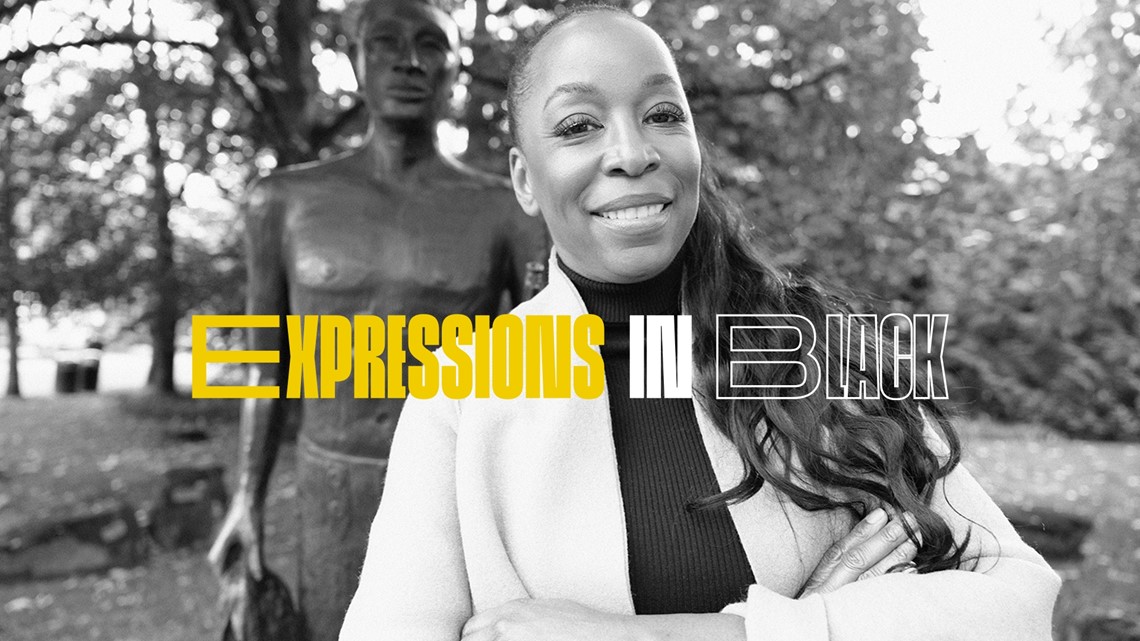
"My motivation to start Know Your Fruit came about because I wanted to deal with the issue of food waste. There's this huge food waste issue, right? Like we have people that are hungry, but yet we are a society that will throw away perfectly edible fruit. What happens in this community, there's a lot of waste in what's called coal. And so I thought, you know what? I could actually buy coal from all these growers and freeze dry it. Just a short distance from my farm here in Hood River, I purchased more land to build what I call the Puff Factory. The facility was just raw land when I purchased it. So yeah, I came out here and decided to be a contractor, took on this project and it was hard, but I was able to pull it through. The square footage is 36,000 square feet. We'll be up and running by the summer of next year. I wanted to create a product that was traceable. And you could you see where the fruit was grown and you would Know Your Fruit."
"There's a lot of different professions related to the food industry. And I want trained people in this industry to know that there's more to just being a grower or a farmer. And I feel like this is the right time to do something that's meaningful."
Episode 6 Easy McCoy
Expressions in Black: Easy McCoy | Recording Artist / Entrepreneur
“I remember the first time I came in the studio; I was 11. Now, I do this for a living. I didn't care what nobody else thought or imagined. Expressing myself has always been about my freedom and being able to tell any story I wanted to tell. There’s a business side to it, a way you can feed your family and create ownership through your voice. I have the tenacity and drive to pursue my passion. When you think differently, apply and execute…a lot of things start to change.”
“The main thing for me is to stay on point and do the right things. If I don’t, my kids’ lives won’t be what they should be. Being a great father is way better than being a great artist and I can’t be a great artist if I’m not a great father. That’s one of the blessings of fatherhood, which I didn’t have growing up, creating a legacy for your kids. I love everyone in my family, but I struggled on my own and had to figure it out. I refuse to have my kids grow up without the benefit of my hard work.”
“I want my kids to look up to me before anyone else, I want them to be proud when I walk into a room. I’m not perfect at all but I’m resilient, focused and consistent. I want them to look up to the things I have done.”
Watch the Full Episode:
“The first deal I received placed my music all over TV, but I didn’t get any money for it. So, I figured out the game and how to corner that market, because you have to be able to eat off what you love to do. I feel like everything I do has to be excellent, which doesn’t mean I won’t fail, because sometimes you miss the mark but that to me is a test of life. I know what I want to do. I know the desires I have, and I will pursue those to the fullest every single day and live my life with no excuses.”
"The music I make now is very diverse."
Interview Question: As an artist, is this some of your best work because of your journey to get here?
McCoy: “Exactly. That’s why the record is called 'The Experience'. Doing the sync gave me the freedom to do what I still love to do. When you tap into this type of energy, music, that deep down tells my story, you can feel it. So, this project was refreshing. It wasn’t about me doing music for TV, but music from what’s on my heart and that’s what the song for Bel-Air is.”
Images: Easy McCoy | Expressions in Black
“Three years ago, the Fresh Prince of Bel-Air reboot came out and my friend Morgan Cooper released it to the world to see what they would think. I remember when he played them. I knew Deja Vu was the record for it. He heard it and believe in what I was doing, and now Bel-air is coming out and I made the theme song for it. A real testament of me staying consistent, believing in myself, and trusting in God throughout the process. It’s a good thing to see us take what we were birthed with, what we saw in our neighborhoods, and take it mainstream with the rap game.”
Episode 7 Zachary Stocks
Expressions in Black: Zachary Stocks | Public Historian / Executive Director of Oregon Black Pioneers
“When I first moved to Astoria, I remember the population was 10,000 people and it was 0.01% Black…and I stopped and did a little math and thought, ‘Wait a minute, is that 10 people?’ This is the oldest American town west of the Mississippi River. I think it's the greatest small town in America.”
“I am the executive director of Oregon Black Pioneers, Oregon's African American Historical Society, and I'm a National Park Service park ranger. The things I geek out over are history and the outdoors. And now, I've found an opportunity where I get to make the two actually come together. If you tell the story of Oregon and you don't include the experiences of people of African descent, then you didn't tell the story.”
“People are surprised to learn how deep black history runs in Oregon. That's always at the forefront of my mind. If we don't share these stories, who will? And so, that's my mission: to try and figure out how can I use the resources that I have and share them with people in the communities, and get them to realize that there's a deeper story here.”
“One of my favorite stories lives at the Lewis and Clark National Historical Park. One thing I didn't know before I started working here is the story of York. York, of course, is the only person of African descent who was on the Lewis and Clark expedition. York's status on this trip was someone without any civil rights, without any privileges in the United States. William Clark still couldn't imagine doing this trip without him because he needed him to be successful in it. When I think about the things that he had to overcome, I feel sort of a bond. And now, I get to share that history with other people. From literally the first day, the first footsteps of non-indigenous peoples in this place we call Oregon, Black people have been a part of these communities and they contributed to the development of these places.”
“Fort Stevens was built at the height of the Civil War. For me, when I walk through sites like this, I feel like I'm walking shoulder-to-shoulder with all the people that have ever been there before. After disrepair in the 1880s, they decided that they were gonna start to build new batteries here. Unfortunately, like many places, I don't see reflections of Black history in those places, even when I know from my own research that Black people have made meaningful contributions there. They were constructed under Moses Williams. Moses Williams was a Buffalo soldier. And from 1895 until 1898, when he retired, he was the only enlisted soldier stationed at Fort Stevens.”
Images: Zachary Stocks | Expressions in Black
“A lot of times, I think there's an attempt to minimize or say that we were bystanders to history as it was happening. But the truth is you can't tell the whole story of Oregon without telling the story of Black Oregon. As an Ordnance Sergeant, Moses Williams was responsible for making sure that all these things worked, to be that last line of defense for the United States here on the Columbia River. But nonetheless, today, very few people even know his name. Today, Oregon is not a particularly diverse place. But when you go back to the early history, you find that this actually used to be a very diverse place. And the fact that subsequent laws were passed to keep people of color from having those same opportunities, I have a service to share that history with other people because when we can learn about the things that happened in the past, we have greater opportunities to call out those inequalities when we see them in the future.”
“For me, I think about how this city has changed so much over the past 200 years, but these views have stayed the same, right? The mountains we stand here and look at were the same ones that our ancestors stood and looked at all that time ago. It's really important to me that I get to share history with other people, both through my work with Oregon Black Pioneers, but also as a park ranger. And living where I live, I get to share the experiences of this incredible place that we get to have together. I guess I just wanna be remembered as someone who cared. Someone who took the time to learn my history. Someone who took the time to appreciate the settings around me and bring all those things together and share them with other people.”
Episode 8 Jelani Memory
Expressions in Black: Jelani Memory | Founder & CEO of A Kids Company About
“I wrote a book for my kids on a whim back in 2018. Having a blended family and raising white kids and Black kids, they were already navigating race, culture, color, and especially the idea of racism. I wanted them to know that it was always cool to come talk to me. That's where this massive light bulb went off in my head, ‘I think every kid needs this’ and not just every kid, but every grown-up and every parent; to create a bridge and a connection with the kids in their lives that they're having meaningful conversations. We knew we needed to create a whole new pathway when it came to who tells their stories, what those stories are about, and who they reach.”
“Welcome to A Kid's Company About. This is our headquarters in Portland, Oregon, and we make books, podcasts, videos, apps, on challenging, empowering and important topics. Starting a business, we went from zero to 100% in seven months. I had 12 books ready to launch and in a lot of ways it should not have worked. A Kid's Book About Money, About Cancer, Body Image, Creativity, Anxiety was a part of the first crop. We press ‘go’ on our little Shopify site, and the orders started coming in. There was something about the attraction of it, the importance of it and the obvious necessity that we should be engaging on these tough topics with the kids in our lives.”
“We've had authors like the iconic LeVar Burton, Taboo from The Black Eyed Peas, and kids like Orion Jean, who just won Time's Kid of the Year. It's about disruption. It's about ‘Why do we have to do it the way that it's always been done?’ I've chatted with many CEOs of large publishers and I’ve not yet talked to one who looks like me.”
“We can take flyers on things that other companies may back away from. To be able to do that with folks who look like us and come from where we've come from leads to new angles on topics we think we all know, and brings a completely fresh perspective.”

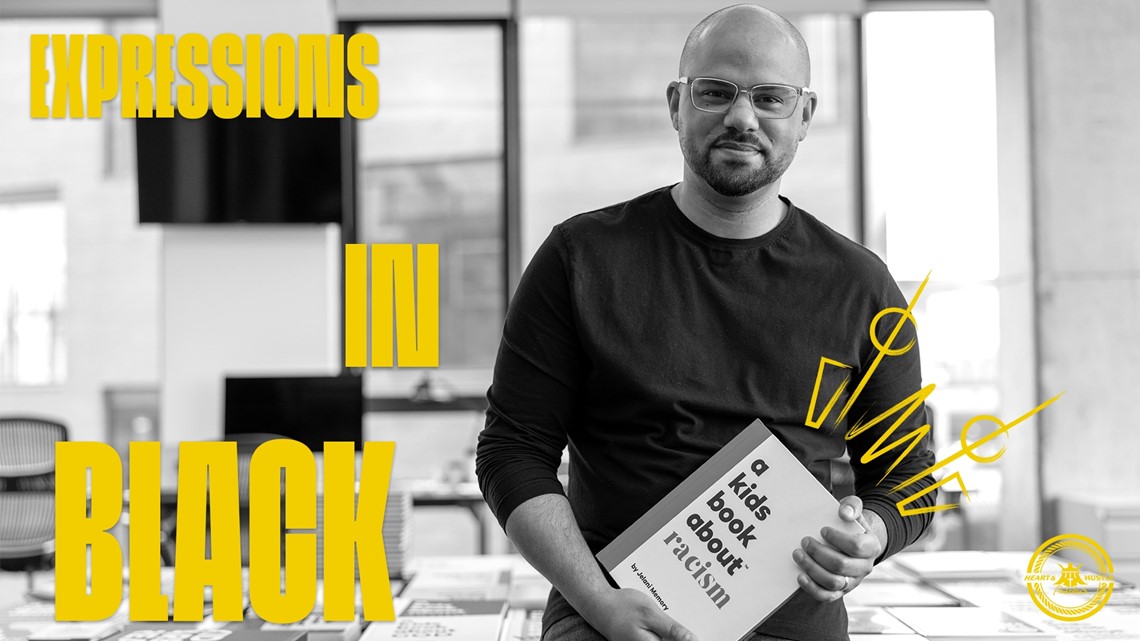
“As soon as I decided to start this crazy kid's book publishing idea around hard topics, finding talent was easy because we all walk around with these stories.”
“Everyone has a story, but most folks don't know how to tell it. We are experts when it comes to talking to kids, being honest with them, talking up to them, not down to them. All while focusing on type, layout, color, and design that treat kids like they're smart. Kids notice good design when they see it. They don't need colorful dragons and mountains to be engaged in an interesting story. With this business, I have been able to embrace the full me and be a storyteller. Now our books, podcasts and videos have gone around the globe. We sold hundreds of thousands of copies and got to bring all these different voices together with this idea that the next generation deserves better. It’s thrilling work to do. It's important work to do. I don't think I'll ever stop doing this work.”
Episode 9 Jordan Dinwiddie
Expressions in Black: Jordan Dinwiddie | Associate Creative Director at Wieden + Kennedy
“I want people to know that someone who looks like me can make a comic book, win a Cannes Lion award, have their own newsletter, can play video games, love books, be a good daughter, a good person and a good friend. That's really what I care about. Oh, and can write ads for Nike. Capitalism is always the last thing on my mind.”
"Being Black is great, but being a Black woman is better. Where I grew up, I was always surrounded by Black women. My grandmother had two girls, my mother had two girls, my aunt has two girls. I've always been surrounded by Black women who worked, read, were loud, smoked cigarettes, and were unapologetically themselves. Where I grew up, I was surrounded by sports, music, comic books, anime— all that nerd stuff. It all got put into a pot, and out came me. I didn't have the language for it yet, but I definitely knew I wanted to work in a field that dictated what was cool."
Watch the Full Episode:
"I had a blog about a certain singer whose name rhymes with fiancé. Someone thought it was funny and said, “you should be using this voice and this point of view to help write social ads”. I said, “Sure! I don't really know what I'm doing, but sure.” I got an internship at this place fresh from Chicago, and I didn't know what Oregon looked like before I got off the plane. I showed up at Wieden & Kennedy and they told me I would be doing social strategy for Nike. Cool, great! Oh my gosh! That is excellent! Put me on basketball because that's all I care about. I care about basketball, and I care about tennis because of Serena Williams. As long as I'm working on those two things, cool. I wrote a bunch of tweets and YouTube copy. My creative director thought they were all really funny and that I should be writing the ads, not tweets about these ads. I thought, 'Oh well, I'm gonna step it up.' You know what I mean? I'm going to kick that door open."

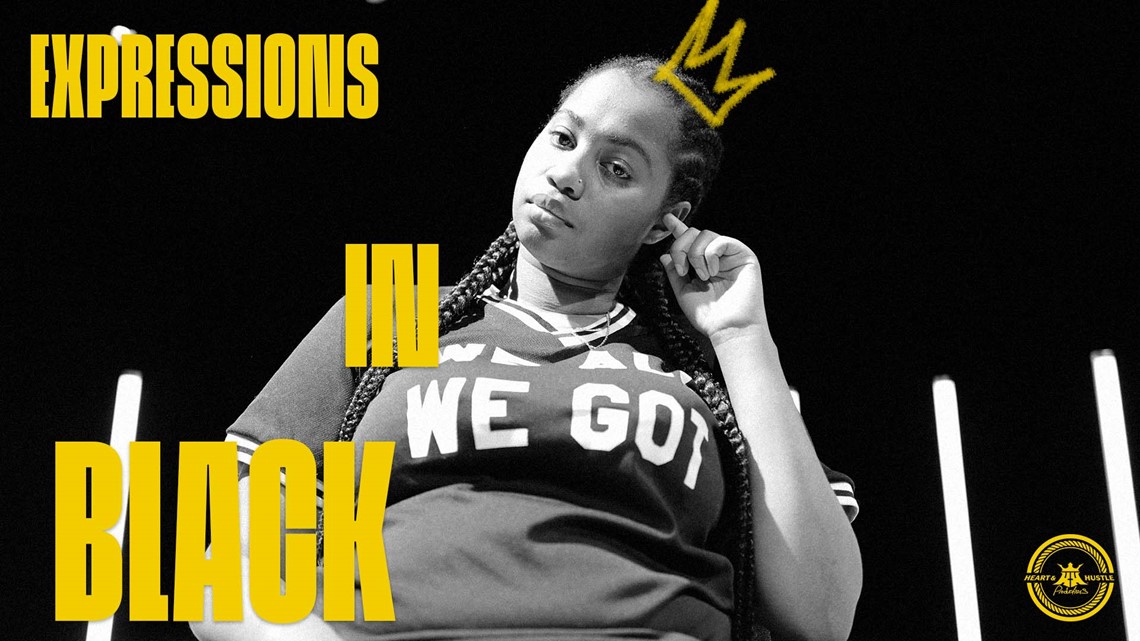
"The account that I work on thrives on pushing culture forward and is a staple in Black households, and in the culture. I got there and I was like, 'Oh, it's white people doing this!' You know what I mean? And I realized very early they needed me here, because it doesn't move without someone of the culture being in the room, or else they're all perpetrating. Who likes Sam's Choice? No one! You like Pepsi, or you like Coca-Cola, and I’m a fresh can of Coke. That's why I am my full self in these spaces; because I had to make sure that I was doing justice by my people. If they really want what they told me they wanted, I'm going to give you that. I'm gonna give you exactly that. I don't want to be Hurricane Jordan, but they’re going to know I was here. I am able to really be in rooms I never thought I'd be in. Rooms I dreamt about being in."
"I will talk about the things that I want to talk about, and apply them to the work that I want to do. If I can allow other Black people to feel safe within what they love and what they enjoy, I've done my job. If I were to say something to my 15-year-old self, I would say 'Everything that you put up on your bedroom wall, cutting out all those Double XL magazines, everything that you were passionate about then, you are getting paid to be passionate about now. You are still you, with a bit more money. You still make mistakes. You will continue to use your words any way that you can. You will live every fantasy that you've ever wanted to live and more.' That's all I got. Anything else? What else do you want?
Episode 10 Season 2 Finale
Expressions in Black: Season 2 Finale
That's a wrap! If you want even more Expressions in Black, check out season one.

